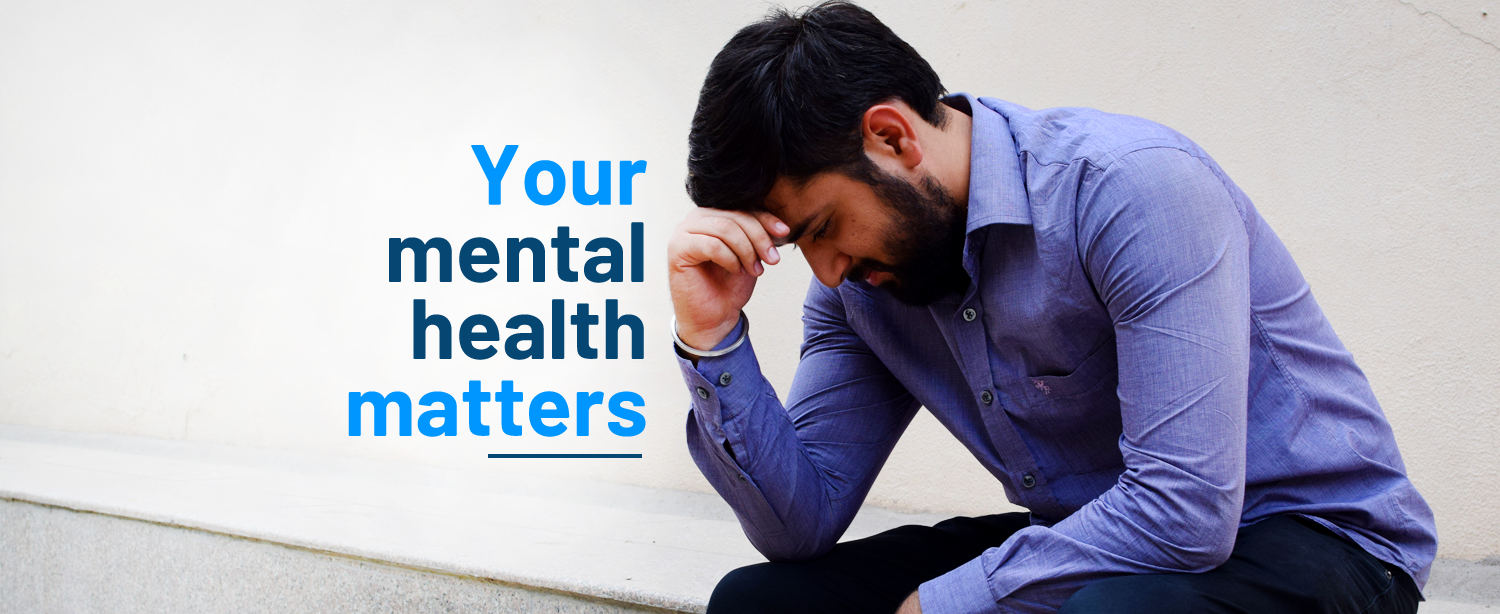Mental health refers to cognitive, behavioural, and emotional well-being. It is all about how people think, feel, and behave. A good mental health also means the absence of a mental disorder. Your mental health affects your ability to cope with stress, overcome challenges, build relationships, and recover from life’s setbacks and hardships. According the World Health Organization (WHO), mental illness makes about 15% of the total disease conditions around the world.
Common mental health disorders
One in four people in the world will be affected by mental disorders at some point in their lives. Treatments are available, but nearly two-thirds of people with a known mental disorder never seek help from a health professional. Stigma, discrimination, and neglect prevent care and treatment from reaching people with mental disorders.
The most common types of mental illness are:
Anxiety disorders
People with these conditions have severe fear or anxiety, which relates to certain objects or situations. Restlessness, fatigue, tense muscles, disturbed sleep are some physical symptoms.
Mood disorders
People with these conditions have significant changes in mood, generally involving either mania, which is a period of high energy and elation, or depression. Examples of mood disorders include:
- Major depression: An individual with major depression experiences a constant low mood and loses interest in activities and events that they previously enjoyed. They can feel prolonged periods of sadness or extreme sadness.
- Bipolar disorder: A person with bipolar disorder experiences unusual changes in their mood, energy levels, levels of activity, and ability to continue with daily life.
- Postpartum Depression: Postpartum depression (PPD) is a type of depression that affects some women after giving birth to an infant. Symptoms include sadness, changes in sleeping and eating patterns, anxiety, and irritability.
Panic disorders
People with a panic disorder experience regular panic attacks, which involve sudden, overwhelming terror or a sense of imminent disaster and death.
Phobias
There are different types of phobia:
- Simple phobias: These might involve a disproportionate fear of specific objects, scenarios, or animals. Fear of closed spaces called claustrophobia is a common example.
- Social phobia: Sometimes known as social anxiety, this is a fear of being subject to the judgment of others. People with social phobia often restrict their exposure to social environments.
Post-traumatic stress disorder (PTSD)
PTSD can occur after a person experiences or witnesses a deeply stressful or traumatic event. During this type of event, the person thinks that their life or other people’s lives are in danger.
Schizophrenia disorders
Schizophrenia is a serious mental disorder in which people interpret reality abnormally. Schizophrenia may result in some combination of hallucinations, delusions, and extremely disordered thinking and behaviour that impairs daily functioning.
Top tips for good mental health
Taking care of your mental and emotional health is as important as your physical health. Here are a few health tips to keep yourself mentally healthy:
Get plenty of sleep
Sleep helps to regulate the chemicals in your brain that transmit information. These chemicals are important in managing your moods and emotions. Lack of sleep can make you feel depressed or anxious.
Eat a healthy diet
Certain mineral deficiencies, such as iron and vitamin B12 deficiencies, can make you feel low. Have a healthy and balanced diet.
Avoid alcohol, smoking, and drugs
Drinking and smoking negatively impact your mental health. It can make you feel more depressed and anxious.
Get plenty of sunlight
Sunlight is a great source of vitamin D. Vitamin D helps your brains to release chemicals that improve your mood, like endorphins and serotonin.
Manage stress
Stress is often unavoidable, but knowing what triggers your stress and knowing how to cope is key in maintaining good mental health. Meditation helps reduce your stress level.
Activity and exercise
Activity and exercise are essential in maintaining good mental health. Regular exercise promotes the release of feel-good brain chemicals.
Do something you enjoy
Take out some “me time” to do fun things you enjoy. Listen to music, take up a hobby or watch a TV show you enjoy to relax and unwind.
Stay connected
Staying in touch with friends and family is important not just for your self-esteem, but also for providing support when you’re not feeling too great.
Mental health in India
India shares a huge global burden of mental health diseases. Be it childhood mental disorders like autism or adult conditions such as depression, anxiety, substance abuse, and psychosis or dementia in old age, the world is facing a challenge in the form of mental illness. The deep stigma around mental health in India contributes to denial and shame among the patients. They fear seeking medical help for their problems. People experiencing mental health problems must seek timely medical help just like they would for other physical health problems.
Seek professional help
One of the most important ways to keep yourself mentally healthy is to recognise when you’re not feeling good and to know when to ask for help. Remove the stigma around mental health. If you’ve made consistent efforts to improve your mental and emotional health and still aren’t functioning optimally at home, work, or in your relationships, it may be time to seek professional help.
Consult highly trained psychiatrists and psychologists at our Department of Psychiatry to help address your mental health problems. At Kokilaben Dhirubhai Ambani Hospital we also provide online consultations through video calls from the safety of your home. Please find below link for more details: https://www.kokilabenhospital.com/departments/clinicaldepartments/psychiatry.html


